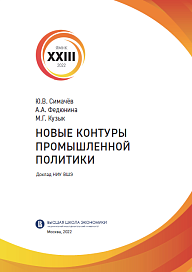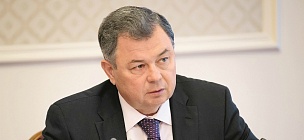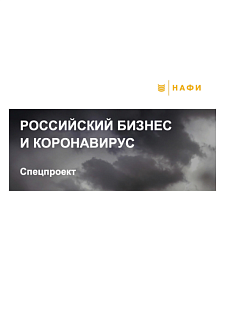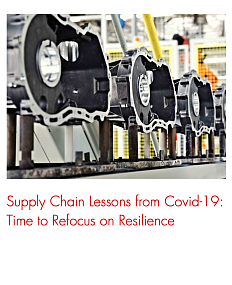Analytical report of the National Research University Higher School of Economics is devoted to the description of the current global trends in industrial policy and the prospects for the development of Russian industry, considering these trends.
Analysts of the Roscongress Foundation have identified the main theses of this study, accompanying each of them with a relevant piece of video broadcasts of panel discussions held as part of the business programs of key events held by the Foundation.
The global production of goods and services is influenced by a wide range of economic and social factors, including changes in natural resource endowments, structural shifts in global and national labor and capital markets, and technological changes.
The authors of the report identify six trends that have a significant impact on global production, most of which were formed back in the 2010s and intensified under the influence of the crisis caused by the COVID-19 pandemic:
1) redistribution of economic potential between macroregions, increased competition in global markets;
2) the spread of the Fourth Industrial Revolution, the emergence of disruptive technologies and the acceleration of technological renewal;
3) increasing the role of small and medium-sized businesses as a driver of structural changes and economic growth;
4) expansion and complication of the role of global value chains (GVCs) in world production;
5) the spread of the gig economy and the globalization of the fight for talent;
6) strengthening of global challenges of sustainable development, including the growth of environmental problems, social inequality, and the consequences of social exclusion of certain groups of the population.
Video: roscongress.org/sessions/industrializatsiya-instrument-ekonomicheskogo-rosta/search/#00:43:14.559
Shifts in global production in the medium and long term will determine the demand for significant changes in industrial policy at the global and national (including Russian) levels.
The authors of the report highlight the following among such shifts:
— There will be a revision of the goals of industrial policy — the growth of social and environmental challenges will inevitably bring the issues of technological change and sustainable development to the fore;
— Geopolitical priorities for the purposes of industrial policy will be revised — the ongoing fragmentation of the global trading system and the expansion of the role of deep regional integration blocs will lead to a revision of the composition of participants and directions of integration in global and regional agreements, this will also affect the revision of industrial policy in countries not included in these agreements;
— The boundaries of industrial policy will go beyond the boundaries of its traditional production sectors — the transformation of production chains, the growth of requests for customization, digitalization, service will determine the need for industrial policy to take into account the horizontal and vertical links of production with other sectors in the economy;
— The subject of industrial policy will continue to expand — already now there is a blurring of the boundaries between industrial, competitive, trade policies and their merging into structural policy; , in dynamically growing agglomerations;
— The transformation of the traditional vertically oriented approach of industrial policy will continue — this will be facilitated by the further spread of end-to-end technologies of Industry 4.0, as well as the need to revise strategic priorities and redistribute areas of support, including with a review of the set of growing and fading industries.
Video: roscongress.org/sessions/novaya-konkurentosposobnost-alternativy-i-perspektivy/search/#00:31:34.656
Management decisions on the development of the Russian economy should be differentiated by industry, considering the specifics of each of them.
In certain industries where there is a real potential for creating unique Russian technological solutions, it may be rational to temporarily leave global chains, but with a mandatory focus on the future (in a few years) inclusion in them at more profitable stages. This approach presupposes the intensive development of the Russian breakthrough scientific and technological base to ensure future competitiveness in terms of new properties. At the same time, reasonable competition in the development of technological solutions, increased attention to the implementation of translational research, as well as support for the creation and operation of technology start-ups, their inclusion in value chains are extremely important.
In a number of sectors, primarily of a public nature (communications, medicine, road construction), it seems possible to consider the potential for transition to a more complex technological level, possibly bypassing certain stages. Here, it is especially important to overcome the existing inefficient local equilibria. Possible tools could be mandatory technical requirements that set technological modernization for the long term. The definition of such requirements would set a qualitative framework for key parameters for the sectors, while its achievement could be implemented using different technological solutions.
Video: roscongress.org/sessions/paradoksy-rossiyskoy-ekonomiki-/search/#00:38:55.744
We also invite you to familiarize yourself with other materials posted in special sections of the Roscongress Information and Analytical System Industrial Diversification, Supply chain management, SMEs and Labor productivity gains dedicated to topical issues of industrial development.






